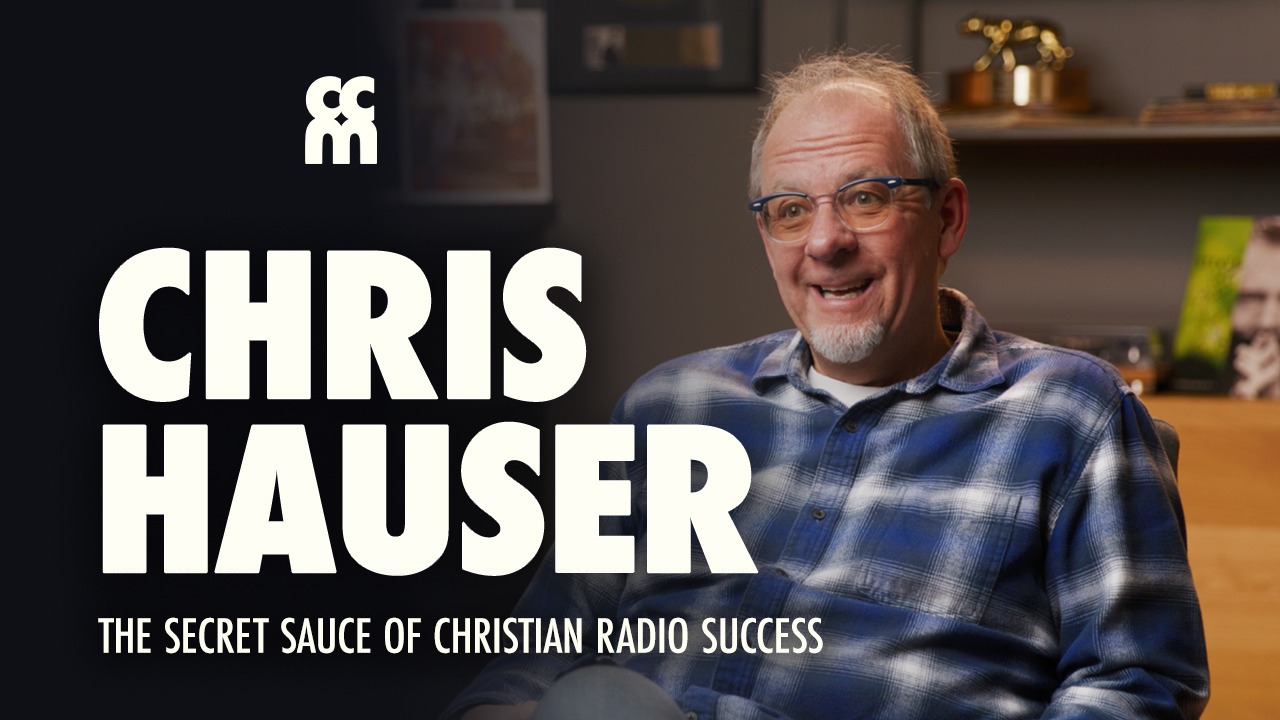
If you’ve ever wondered why some songs make their way to your radio and never leave – the answer might trace back to one man, sitting in an office with a phone pressed to his ear. He stares at his notes, and he probably still has a Rolodex (ask your parents) that has been built Read More
If you’ve ever wondered why some songs make their way to your radio and never leave – the answer might trace back to one man, sitting in an office with a phone pressed to his ear. He stares at his notes, and he probably still has a Rolodex (ask your parents) that has been built over nearly four decades. He’s been the man behind the curtain, the airplay broker, the quiet force turning Christian music anthems into chart-topping phenomena. From the reaction I receive when his name his mentioned, he is also everyone’s best friend.
His name is Chris Hauser, and in Christian music circles, he’s not just a legend, he’s the call you make when you think you’ve got a hit. “I tell people,” he beams, “I make a great living talking to my friends all day long about music I love.”
Hauser’s career began far from Music Row glamour. In the mid-1980s, he was running a Christian radio station out of a doublewide trailer in a swamp in East Syracuse, New York. “I was making $12,500 a year,” he remembers. “I’d been through seven general managers in eight years. When it rained, the parking lot turned into a swamp. The highlight of my week was when a record company promoter would call. That’s when I realized I wanted to be one of them.” So, he bought a plane ticket to Nashville for GMA Week 1987 and hit the pavement—literally.
“I was ready to walk up and down Demonbreun Street with a sandwich board that said, ‘Will work for your record company’,” he laughs. “All the labels knew that this was my dream job.”
That same year, Myrrh Records hired him, making Hauser the first person ever pulled directly out of radio to work a label radio-promotion gig. “It’s a weird job,” he grins. “We call radio stations, representing the records we believe in. That’s it. That’s the job.”
Hauser’s week runs like clockwork. Mondays are for Zooms and strategy; Tuesdays through Thursdays are sacred. “If you try to call me on those days, good luck,” he says. “I call radio stations. All day.” Ninety stations. One by one. “There’s nothing like the personal touch of an actual phone call,” he says. “I’m taking copious notes on our call from two weeks ago. Maybe it was three weeks ago, maybe it was last week and there was something big that was going on. I’m taking notes, and then those are the first things I’m asking about… ‘How was the surgery? Did your kid graduate?’ before we ever talk about a song. That kind of care builds trust.”
After decades in the trenches, he’s built something rare: a network of programmers who want to take his calls. “I thank them for the songs they’re already playing… and then I start pitching the new ones. It’s all relationship.” It’s old-school, relational, and relentless. In a world now obsessed with digital metrics, Hauser’s currency is trust. “If 20 people are calling a programmer in an hour, only four might get through. You’ve got to be one of them and then you better bring something great.”
When Warner Alliance folded in 1998, Hauser found himself suddenly unemployed. Instead of retreating, he followed his heart. But that detour birthed something bigger than a job—it helped ignite modern worship music. After discovering a blue cassette labeled The Cutting Edge Band (early Delirious?), Hauser became obsessed. “That cassette changed my life,” he says. “I told a friend at Billboard, ‘All I want to do is push worship music forward.’ I didn’t know what that looked like, but I knew it was coming.”
That single statement, printed in Deborah Evans Price’s Higher Ground column, changed everything. Integrity Music read it and called. They were launching a new imprint, Vertical Music, and wanted Hauser on board.
“They flew me down to Mobile,” he says, “and I’m sitting in a room with Darrell Evans listening to ‘Trading My Sorrows,’ ‘Your Love Is Extravagant’ and I’m just wrecked. They ask, ‘Can you get this on the radio?’ and I said, ‘I think I can.’ That’s how my independent promotion career started.”
Soon after, a demo labeled Zilch: The Millennium Demos—the future Sonicflood—landed on his desk. Hauser started duplicating cassettes himself.
“I was completely out of line,” he admits. “But I had to get people to hear those songs. It was like lightning in a bottle.” By 2000, Sonicflood had numerous radio hits and launched a movement. “People didn’t just want worship on Sunday,” Hauser says. “They wanted it all week long.”
It was a seismic shift. Hauser was there at ground zero. “Depending on the room that I’ll walk into and people find that out about me, I’m either saying ‘you’re welcome’ or ‘I’m sorry.’ But I don’t think I had that big an impact on it. I really don’t. I just knew something was happening.”
So you’re an artist reading this article and wanting to know how to get a song to radio. Is their a secret formula? Hauser doesn’t seem to keep secrets, and he’ll just give you the math. “There are 20 to 25 of us promoters,” he says. “Every week, all of us are pitching about 50 songs to radio. By Friday, each station might add one. The other 49 roll over to next week—and new ones get added. That’s the reality.”
He sends a brutally honest eight-paragraph primer to every artist who contacts him. Most never reply. “The ones who stick around I tell, ‘Send me $1,000 and I’ll listen to your record and tell you if you have something competitive,’” he says. “If that scares you, you’re not ready. Because a real radio campaign costs $20,000 to $40,000.”
Money is only part of the equation. He knows he can’t take everything or it could hurt his reputation “I’m only as good as the records I talk about. If I take on bad songs, radio loses trust.” He once again reminds that “trust is everything.”
For all his spreadsheets and call logs, Hauser knows the real spark can’t be engineered.
“At some point, God just puts His finger on an artist and says, ‘It’s time.’ That’s what happened with Lauren Daigle, Amy Grant, Zach Williams. You can’t force it.”
Still, he teaches that connection is everything. “When someone hears a song and thinks, ‘That’s me,’ that’s when it breaks through.”
At 65, Hauser is still the benchmark for instinct in radio promotion. “I’m having the time of my life,” he says. “There’s a new generation of promoters coming up and they’re really good. But I’m not done yet. I still love picking up the phone.”
The Christian music industry is changing faster than ever. Streaming, algorithms, short attention spans, but Hauser is more aware than ever of why Christian radio still matters. “We have over 30 million people who listen to terrestrial Christian radio every week,” he says. “We didn’t have that in the ’80s or the ’90s. It’s bigger now than it’s ever been… Every station is trying to reach that mom driving with kids in the back seat,” he says. “She doesn’t want to build a playlist. She just wants someone to tell her it’s going to be okay. That’s still our mission.”
If there is one thing that sticks out in our conversation, Chris Hauser is optimistic about the future. “People say radio’s dying, but that mom in the min-van is still there. She’s still turning the dial, looking for something safe, something hopeful, something familiar. Radio’s not for the person scrolling TikTok on their lunch break, it’s for that mom juggling everything, looking for peace in the chaos.”
In that moment, it all clicks. Every Tuesday, Wednesday, and Thursday when he sits down to make his calls, he’s not thinking about stations or statistics. He’s thinking about her.
“When she turns that key, I want the first thing she hears to remind her that God hasn’t left her,” he says quietly. “That’s who I’m working for.”
WATCH THE FULL INTERVIEW




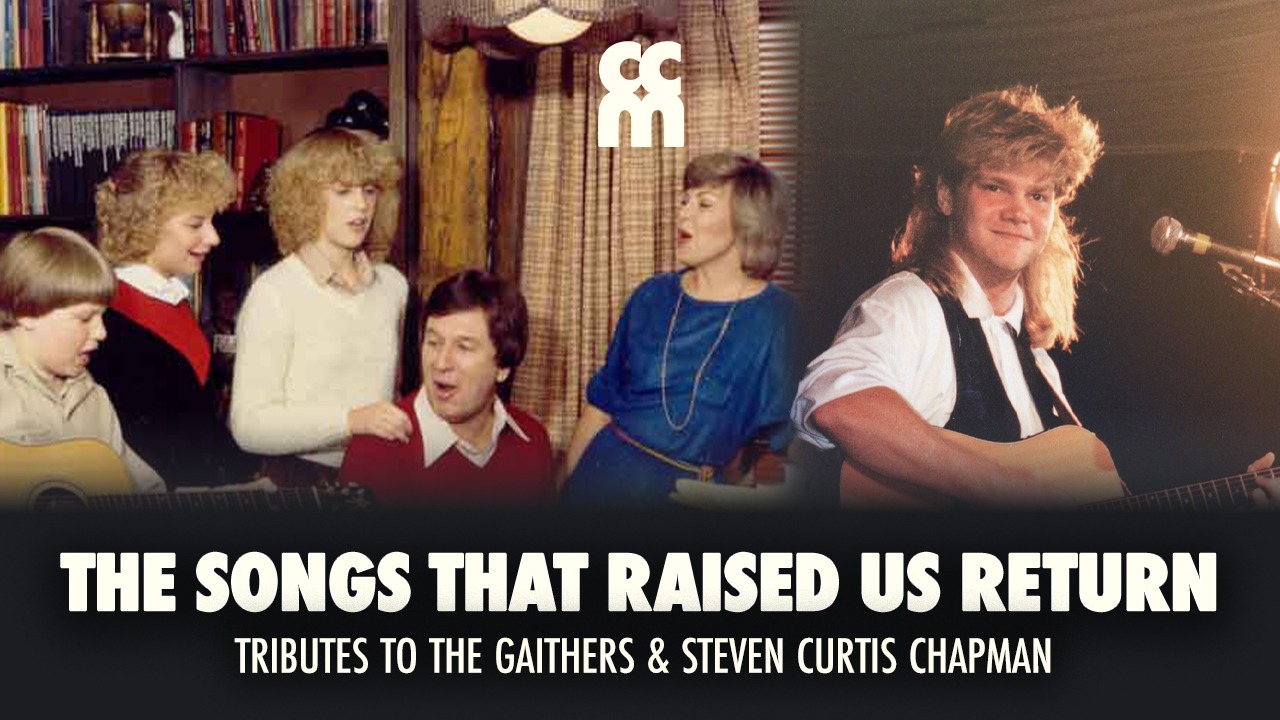 Tis the Season for Tribute Albums: Honoring the Gaithers & Steven Curtis Chapman
Tis the Season for Tribute Albums: Honoring the Gaithers & Steven Curtis Chapman
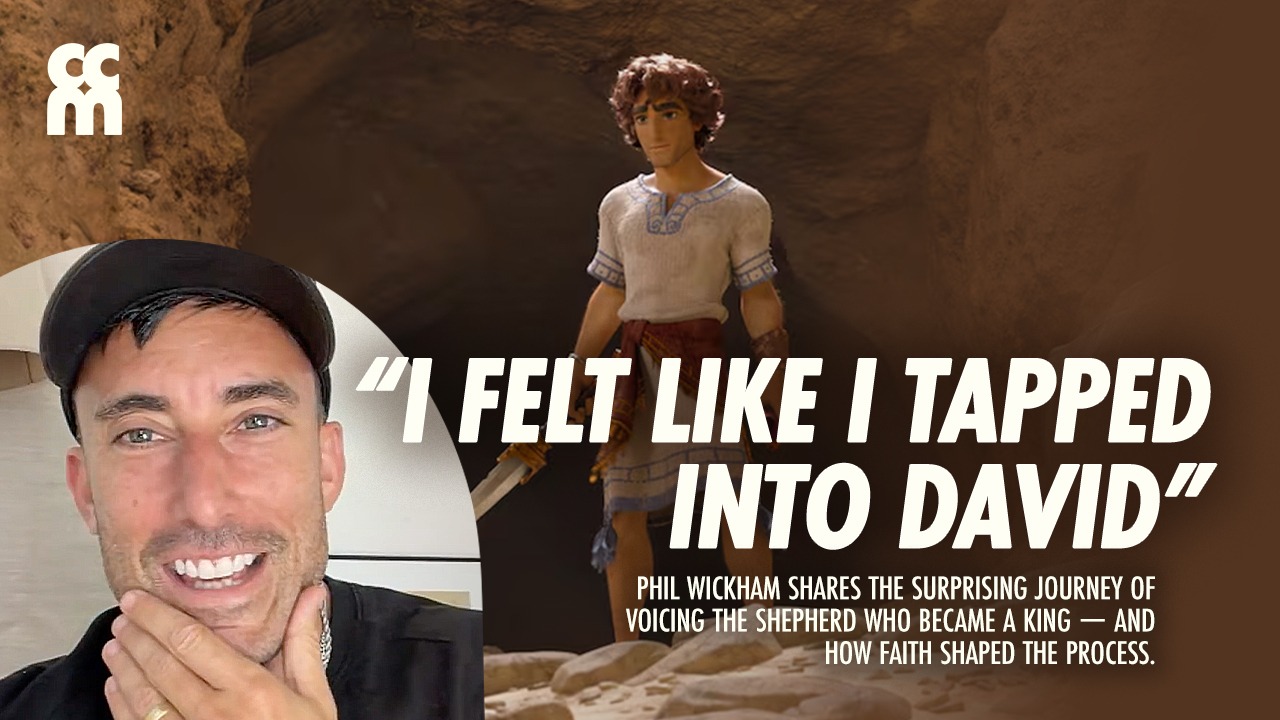 Phil Wickham Brings David to Life – Exclusive CCM Interview
Phil Wickham Brings David to Life – Exclusive CCM Interview
 Wingfeather Saga’s Immersive Premier / One-On-One with Podo
Wingfeather Saga’s Immersive Premier / One-On-One with Podo
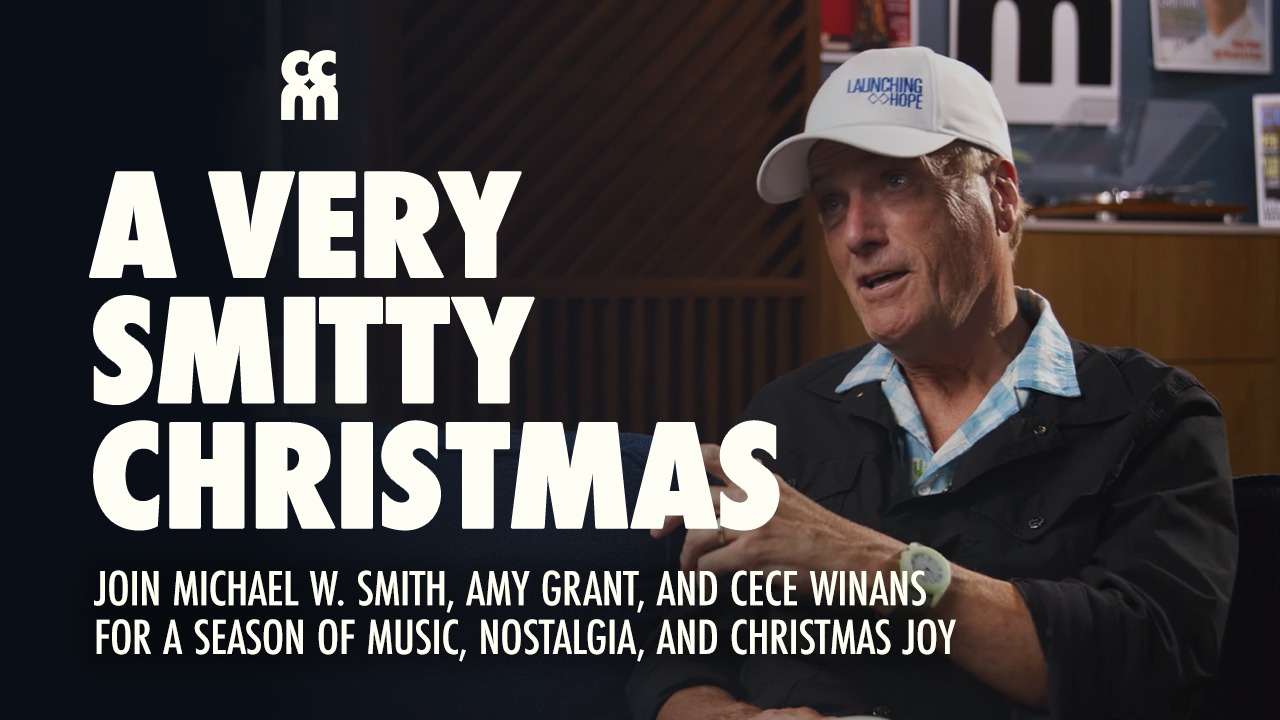 A Very Smitty Christmas
A Very Smitty Christmas
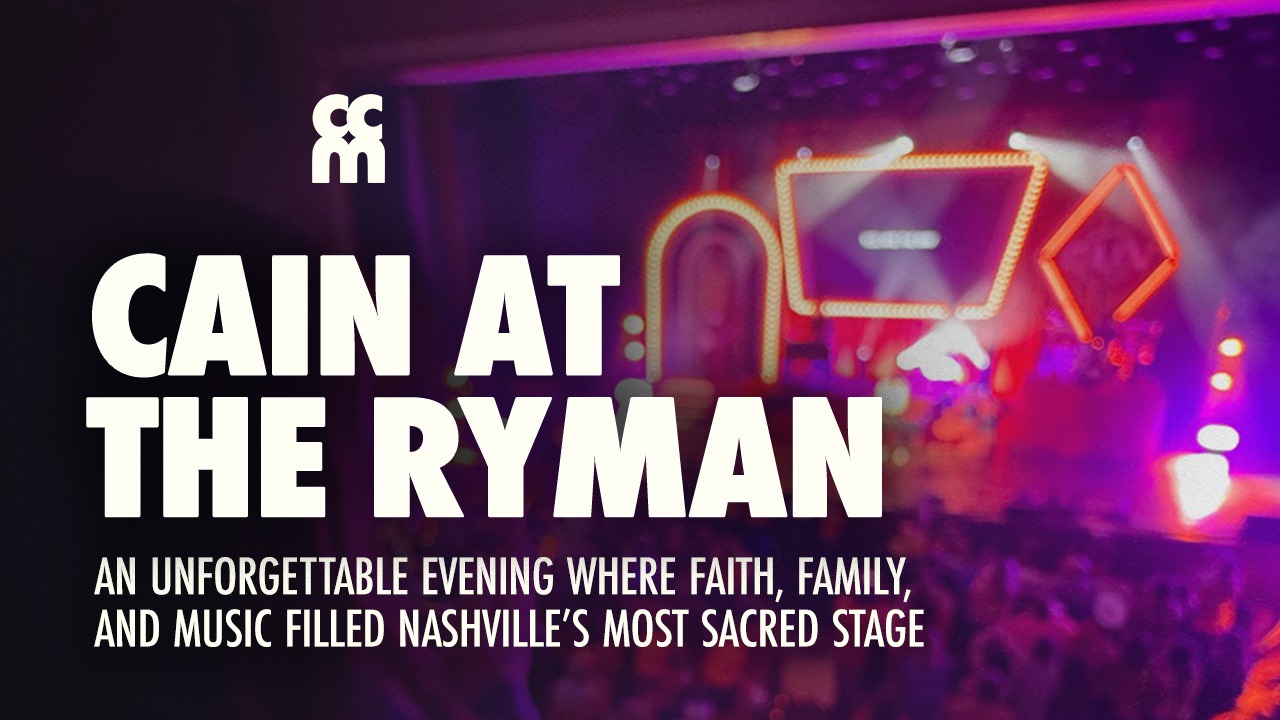 CAIN at the Ryman: A Night of Worship, Wonder, and One
CAIN at the Ryman: A Night of Worship, Wonder, and One





